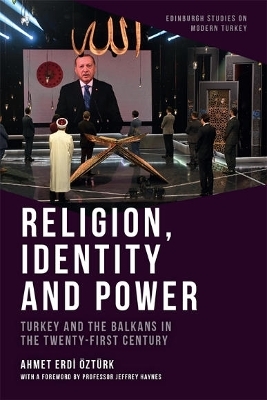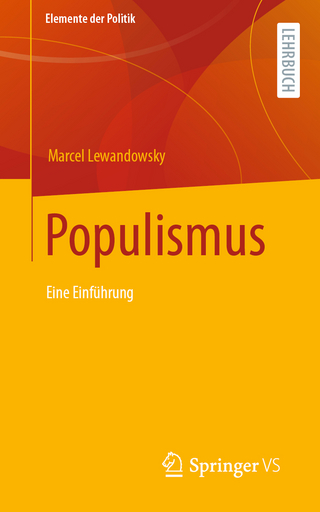
Religion, Identity and Power
Edinburgh University Press (Verlag)
978-1-4744-7469-6 (ISBN)
- Lieferbar (Termin unbekannt)
- Versandkostenfrei innerhalb Deutschlands
- Auch auf Rechnung
- Verfügbarkeit in der Filiale vor Ort prüfen
- Artikel merken
Discusses the effects of Turkey's authoritarian turn during the AKP rule in the domain of foreign policy
Examines the role of religion, ethnicity, state identity and power in the relations between Turkey and the Balkan Peninsula
Presents the results of more than 120 semi-structured interviews with political actors, diplomats, religious leaders, scholars, journalists and religious community representatives in Turkey and the Balkans
Provides an example of a hybrid insider/outsider status when conducting ethnographical fieldwork among religious groups
Watch a webinar from The Berkley Center for Religion, Peace, and World Affairs (Georgetown University) where Ahmet Erdi zt rk discusses the book with Nukhet Sandal
Watch Ahmet Erdi zt rk talk about his book with Prof. Scott Lucas on DeepDivePolitics
Read an interview with Ahmet Erdi zt rk about this book at The Adriatic Report
Watch Ahmet Erdi zt rk discuss this book on the Centre for Southeast European Studies Youtube
Turkey and its recent ethno-religious transformation have had a strong impact on the state identity and country's relation to the Balkan Peninsula. This book examines Turkey's ethno-religious activism and power-related political strategies in the Balkans between 2002 and 2020, the period under the rule of the Justice and Development Party (AKP), to determine the scopes of its activities in the region.
Ahmet Erdi zt rk illuminates an often-neglected aspect of Turkey's relations with its Balkan neighbours that emerged as a result of the much discussed 'authoritarian turn' a broader shift in Turkish domestic and foreign policy from a realist-secular to a Sunni Islamic orientation with ethno-nationalist policies.
In order to understand how these concepts have been received locally, zt rk draws on personal testimonies given by both Turkish and non-Turkish, Muslim and non-Muslim interviewees in three country cases: Republic of Bulgaria, Republic of North Macedonia and Republic of Albania. The findings shed light on contemporary issues surrounding the continuous redefinition of Turkish secularism under the AKP rule and the emergence of a new Muslim elite in Turkey.
"
Dr Ahmet Erdi zt rk is Senior Lecturer (Associate Professor) in International Relations and Politics at London Metropolitan University and a Marie Sklodowska-Curie fellow at Coventry University in the UK and GIGA in Germany. He is also an associate researcher (Chercheur Associ ) at Institut Fran ais d' tudes Anatoliennes and editor of International Journal of Religion. He was a Swedish Institute Pre and Post-Doctoral Fellow at Institute for Research on Migration, Ethnicity and Society (REMESO), at Link ping University, Scholar in Residence at the University of Notre Dame's Kroc Institute for International Peace Studies. He is the author of more than 20 articles, numerous policy reports, opinion pieces and co-editor of four special issues and two books on religion and politics and Turkish politics. He is a regular contributor to media outlets such as Open Democracy, The Conversation, Huffington Post and France 24.
| Erscheinungsdatum | 02.12.2022 |
|---|---|
| Reihe/Serie | Edinburgh Studies on Modern Turkey |
| Vorwort | Jeffrey Haynes |
| Zusatzinfo | 22 B/W illustrations 3 B/W tables |
| Verlagsort | Edinburgh |
| Sprache | englisch |
| Maße | 156 x 234 mm |
| Themenwelt | Sozialwissenschaften ► Politik / Verwaltung ► Vergleichende Politikwissenschaften |
| ISBN-10 | 1-4744-7469-1 / 1474474691 |
| ISBN-13 | 978-1-4744-7469-6 / 9781474474696 |
| Zustand | Neuware |
| Haben Sie eine Frage zum Produkt? |
aus dem Bereich


